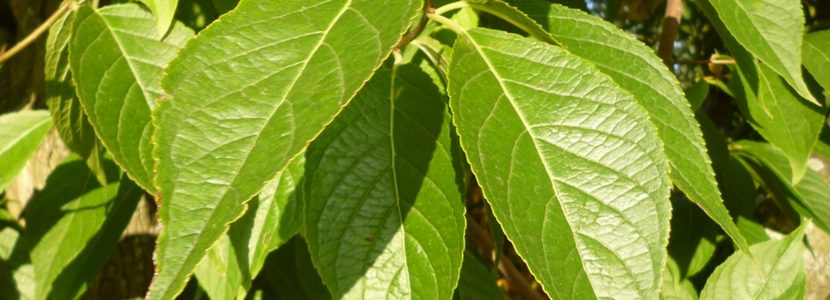Eucommia ulmoides is a deciduous evergreen tree of the Eucommiaceae family, widely used in China for the prevention of health problems linked to obesity. This tree is rich in lignans, iridoid terpenes, flavonoids, polysaccharides and other active components, with antihypertensive, hypoglycemic, anti-inflammatory, liver protection, antitumor and other pharmacological properties.
Some studies have been carried out to evaluate the potential of Eucommia ulmoides as a feed supplement within Chinese herbal medicine. Amongst these previous studies, some have focused on the effects of Eucommia ulmoides leaf and its extracts on growth performance and antioxidant activity in pigs (Lee SD, Kim HY, Song YM, et al. 2009). However, there are very few current studies assessing the effects of Eucommia ulmoides leaf extracts (ELE) on lipid metabolism in growing–finishing pigs. And there is still no clear consensus on what may be the optimal supplement level. Considering that there are many similarities between pigs and humans in terms of physiological traits and functions, the effects of ELE as a dietary supplement in pigs can be used as a model to study human nutrition and metabolism (Kleinert M, et al. 2017).
Study
Based on previous studies, researchers set out a trial in which they supplied varying amounts of ELE: 0, 0.1, 0.2, or 0.3% within growing–finishing pig diets. This study looked at the effects of dietary supplementation with Eucommia ulmoides leaf extract on carcass characteristics and lipid metabolism in fattening pigs.
Materials and Methods
A total of 144 crossed piglets (Duroc × Landrace × Yorkshire) with an initial average weight of 10.11 ± 0.03 kg were randomly assigned to four treatment groups, with six pens per treatment and six piglets per pen. Each group of pigs was fed a basal diet or a diet supplemented with increasing levels of Eucommia ulmoides leaf extract (0.1, 0.2 or 0.3%).
Results and Discussion
- The results showed that the addition of Eucommia ulmoides leaf extract did not have any negative effect on the growth performance of pigs.
- Dietary supplements of 0.1% Eucommia ulmoides leaf extract increased carcass weight, carcass yield, carcass length and spine area.
- Compared to the control group, supplementation with 0.2% Eucommia ulmoides increased levels of adiponectin, insulin-like growth factor 1, hormone-sensitive lipase activity, and serum lipoprotein lipase.
- Histological examination showed that Eucommia ulmoides leaf extract inhibited dorsal fat deposition.
- Biochemical indices related to lipid metabolism and mRNA expression levels improved after supplementing diets with Eucommia ulmoides leaf extract. In addition, the three levels of Eucommia ulmoides leaf extract markedly increased the levels of p-AMPK-α and p-ACC protein.
Conclusions
- Based on the obtained results, researchers concluded that the addition of <0.3% Eucommia ulmoides leaf extract in fattening pig diets could partially improve carcass characteristics with no apparent adverse effects on growth performance.
- The 0.1% ELE supplement improved carcass traits, and the 0.1 and 0.2% ELE supplement can reduce the level of TG in serum and increase the level of hormones and enzyme activity that promote fat catabolism.
- The mRNA and protein expression levels of the key genes related to lipid metabolism showed that the lipid-lowering mechanism of ELE may be through the activation of the AMPK-ACC pathway to inhibit fat deposition in back fat tissue.
- However, with 0.3% supplement levels there were no significant effects on carcass traits and the lipid metabolism of growing–finishing pigs. In fact, some indexes even had negative effects.
- In conclusion, the optimal ELE inclusion level according to the obtained results ranges from 0.1 to 0.2%. Finally it must be highlighted that due to the great variety of bioactive components within ELE; more research is still needed in order to establish which of these components plays a main role in producing the above mentioned beneficial effects. Therefore, researchers suggest that further studies are carried out based on a cell culture model.
Source: Abstract taken from “Effects of Different Supplemental Levels of Eucommia ulmoides Leaf Extract in the Diet on Carcass Traits and Lipid Metabolism in Growing–Finishing Pigs.” Frontiers in Veterinary Science. 2021
